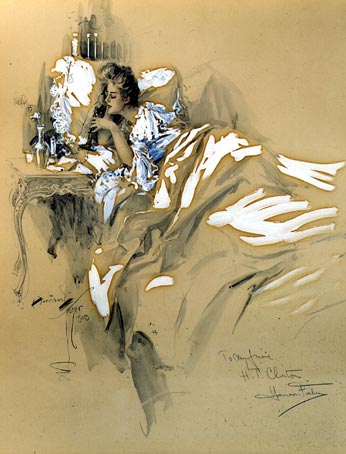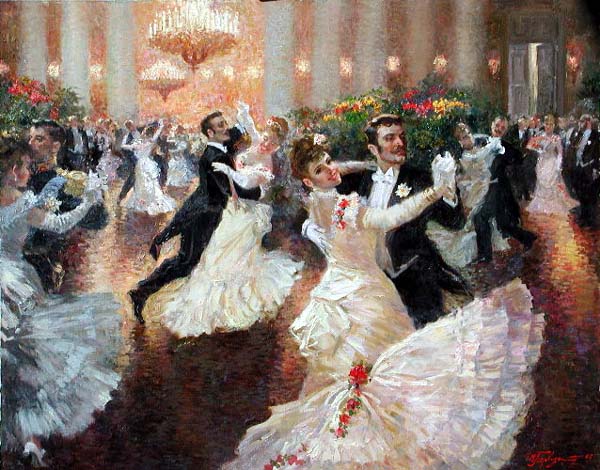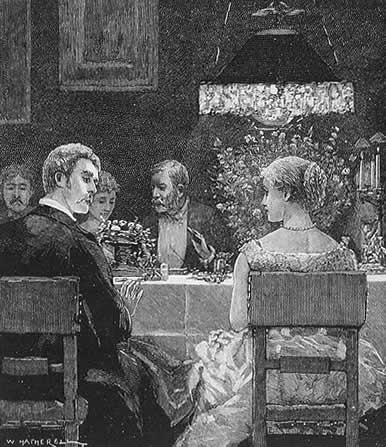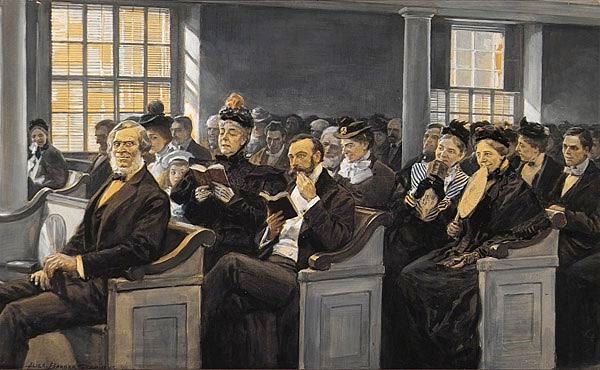
Everywhere in these days one hears the same story. The American woman in her home, whether in city or country, is becoming as dependent upon the telephone as her husband in his store or office. She orders the family dinner by telephone, upbraids her dressmaker by telephone and electioneers by telephone for the presidency of her club. If she happens to live in one of the houses equipped with the latest pattern of telephone apparatus she gives her orders to the cook in the kitchen without leaving her chair in the sitting-room, for the telephone has taken the place of the speaking-tube in the up-to-date city residence. No habit grows by what it feeds on more rapidly than the telephone habit.
Things have come to such a pass that an elaborate code of telephone etiquette has come into being. A first rule has been formulated to the effect that messages shall be sent only to social equals. It is a breach of good telephone form for Mrs. A to ask her servant to call up Mrs. B; and Mrs. B, if snubbed in that way, would be quite satisfied in cutting Mrs. A’s acquaintance. Of course, it is possible for Mrs. A to send her message by means of a servant, but in order not to give offence it is necessary that Mrs. A’s servant repeat Mrs. A’s message to Mrs. B’s servant and that Mrs. B’s servant take the message to Mrs. B.
When, however, Mrs. A calls for Mrs. B it is to be expected that a servant may respond. In that case it is perfectly proper for Mrs. A to give the servant a message for Mrs. B, but care must be observed if, for instance, an invitation to drive or to dinner is being extended, that it be expressed in language as carefully chosen as any that a gentlewoman would use in a written note. In general, Mrs. B, if she is at all punctilious, will prefer to go to the telephone and to accept or decline the invitation personally. If she permits the servant to make the reply it is incumbent upon her to have the message worded with a formality equal to that used by Mrs. A.
“The Telephone in Home Life” – New Era Illustrated Magazine (1904)





Just imagine their horror at the booty call text.
@heidenkind LOL! I can imagine that it wasn’t quite unknown to the Edwardians…;-)
There is a novel thought – telephone etiquette! I realise it was written in 1904, but the writer would have been horrified by people who now make and receive telephone calls at the dinner table. Or by people in coffee shops who do their business by phone… LOUDLY.
The details may change over the decades, but the principles of civility do not.
@Hels: Ditto, ditto, ditto! One good thing about manners and etiquette is that it set boundaries for certain types of behavior. I force myself to leave my cell phone in my purse when eating or shopping or any other public activity, because it can create isolation.
I chuckled at the notion of social equity. Your servant can call mine but do not reach above your station. I imagine folks of our parents’ and/or grandparents’ have the same thought about texting, smartphones and the like. Delightful piece.
@Mary: I’ve read that so many of the wealthy resisted telephones because it was so intrusive. Any one who wanted to get into your social circle could just ring you up, as opposed to having to humbly leave their card and hope you deigned to return the call.